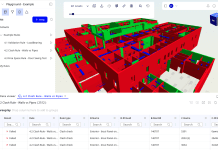For more than 80 years, the Modular & Portable Building Association (MPBA) has spearheaded volumetric modular growth across the commercial construction sectors. Here, Richard Hipkiss, development director for the MPBA, makes a case for modern methods of construction in pushing up productivity
Low productivity has been the proverbial thorn in the side of the construction industry for decades, driving up building costs, reducing profits and adding risk.
According to government statistics, since 1997 the annual rate of construction productivity improvement has been circa 21% lower than the wider economy.
More dynamic building method
The benefits of volumetric modular buildings come from the industrialisation of key construction tasks. MPBA members aim to standardise, streamline and automate major parts of the value chain to enhance productivity.
Due to the more dynamic building method, data from members of the Royal Institution of Chartered Surveyors (RICS) shows that volumetric modular technology can be 50% faster than onsite approaches such as brick and block.
Exploiting cutting-edge digital design and manufacturing technology combined with the ability to simultaneously carry out onsite groundworks, the efficiency benefits of this most advanced of offsite construction methods cannot be overlooked.
Resilience in the sector
The collapse of modular builders like Ilke Homes and Caledonian Modular raises questions about the sector’s resilience, with the report acknowledging the need for more strategic coordination and clear government intervention to prevent further failures.
The underlying challenges of the housing shortage are much more complex and political than simply finding a quicker way to build.
Manufacturing facilities require substantial investment of time and money to set up and need a constant throughput of work to provide a return on that investment. As we have witnessed, the stop-start nature of residential construction is not conducive to keeping a factory running at capacity.
But we do not have to go far to see that volumetric modular construction can work. We just have to take a look at the UK commercial sectors particularly healthcare and education, where modular technology has been successfully exploited for decades.
Leading modular manufacturers within our ranks strive to develop long-term strategic relationships by developing skills and specialisms in these sectors. By standardising, streamlining and automating major parts of the value chain, projects can benefit from the industrialisation of key construction tasks.
Reskilling the construction workforce
The recent Skills England report, published in September 2024, highlights a significant opportunity for the expansion of Modern Methods of Construction to address the industry’s labour shortages and productivity challenges.
In its analysis, Skills England outlines the urgent need for an additional 252,000 construction workers between 2024 and 2028, a figure presented by the Construction Industry Training Board even before Labour’s housebuilding plans were unveiled.
The report goes further, pointing out that the demand will not be limited to housing, with new transport, education, health and energy infrastructure also requiring a substantial increase in capacity.

MPBA Learning Hub
In 2020, the MPBA launched a new Learning Hub delivering education programmes where young and mature students can learn key skills relevant to the industry.
The facility, which is in Coventry, offers a dedicated environment for industry experts to share valuable knowledge away from the pressures of the workplace. Unlike regional training providers, the MPBA’s course content is developed with members, for the benefit of members.
The Learning Hub supports employees with varying levels of experience to achieve recognition for their knowledge and helps them apply for construction skills cards (CSCS).
Our Learning Hub provides the MPBA with the ability to deliver a consistent high level of informative, technical and best practice programmes for members including:
• National Vocational Qualifications (NVQ).
• New entrants programmes.
• Specialist training.
• Electrical training.
• Online courses.
MPBA: Spearheading volumetric modular growth
The Modular & Portable Building Association plays a key role in supporting all sections of the industry.
Leading best practice principles, the association is represented on many committees for the benefit of members. Most importantly, the MPBA ensures evolving government policies and decisions are not made on behalf of the construction industry without due consideration for the impact they may have on the volumetric modular sector.
With its powerful combination of controlled deliverables and customisable outputs, modular construction provides cost and time efficiencies, together with the repeatable quality and safety – meeting the key drivers and stringent protocols demanded by the construction sector.
Join MPBA today
The MPBA and our members firmly believe that the benefits of manufactured buildings begin in the factory, continue to the construction site and last through the lifetime of the building.
Joining an association with many other likeminded professionals will open up new collaboration opportunities and add significant value to your company. The MPBA is recognised as the voice of the industry. As a member the team can help you solve business problems, connect you to new customers and suppliers and make your voice heard.
Become a member today and open the door to a wide range of resources and support. For more information or details of how to join call 02475 901938 or email kate@mpba.biz
For more information, visit www.mpba.biz or follow my LinkedIn profile.
Please note: This is a commercial profile.












![[Video] Fireco: 80 new fire doors required for residential flats in London](https://www.pbctoday.co.uk/news/wp-content/uploads/2025/04/2024-06-01-Lords-view-one_1200x750_004-218x150.webp)

